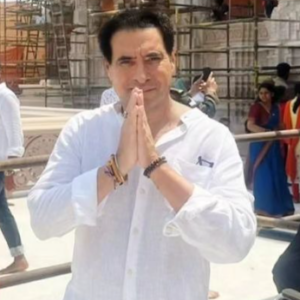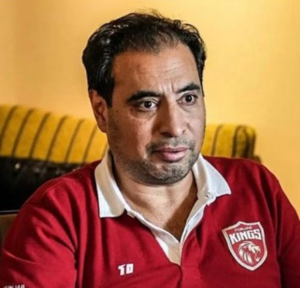The legal clash between Preity Zinta and Mohit Burman over the sale of shares in KPH Dream Cricket Private Limited underscores the complexities and challenges of managing high-stakes business ventures in the sports industry
As the case unfolds and the hearing approaches, the stakeholders and fans alike will be keenly observing the developments and their potential impact on the Punjab Kings franchise.
The outcome of this dispute will likely shape the future of the franchise and its governance, highlighting the importance of clear agreements and effective conflict resolution mechanisms in maintaining organizational harmony.
The Indian Premier League’s financial success is evident in the soaring valuations of its franchises, including the Punjab Kings. Despite PBKS’s on-field struggles, the franchise’s valuation remains substantial, reflecting the broader financial trends and market dynamics of the IPL.
The league’s growth, the introduction of new teams, and the increasing value of broadcasting rights and sponsorships have all contributed to the impressive valuations of IPL franchises.

Also Read: Carlo Ancelotti’s Real Madrid Considers Dani Ceballos Exit: Transfer News Update
Table of Contents
Preity Zinta vs. Mohit Burman: Legal Battle Brewing
In a surprising turn of events, Preity Zinta, co-owner of the Punjab Kings (PBKS), has initiated legal proceedings against her fellow co-owner Mohit Burman.1
This legal action, involving a restraining order from the state high court, has brought to light a significant dispute concerning the ownership shares of KPH Dream Cricket Private Limited, the entity that manages the PBKS franchise.
Exploring the backgrounds of the stakeholders, the nature of the dispute, and the potential implications for the Punjab Kings franchise.
Same tools, different thinking!!pic.twitter.com/YSH9RITxyI
— Mohit Burman (@imohitburman) August 17, 2024
Stakeholders and Shareholding Structure
KPH Dream Cricket Private Limited, the company through which the Punjab Kings operate, is characterized by a diverse and influential group of stakeholders.
Mohit Burman, who holds the largest share with an impressive 48 percent stake, is at the heart of the current dispute. This substantial share makes him a pivotal figure in the decision-making processes of the franchise.
Other key stakeholders include Ness Wadia, who owns 23 percent of the shares, and Karan Paul, who holds the remaining shares.
The distribution of shares among these parties establishes a framework for how decisions are made and how disputes are resolved within the organization.
The Dispute: Selling Shares to a Third Party
The crux of the dispute revolves around Mohit Burman’s intention to sell 11.5 percent of his shares to an unidentified third party.
This move is not just a routine business transaction; it violates an internal agreement among the stakeholders.
According to this internal pact, any stakeholder wishing to sell their shares must first offer them to the existing partners before considering external buyers.
This protocol aims to maintain the control and cohesion among the core owners of the franchise. By circumventing this agreement and proposing to sell shares to an external party, Burman’s actions have triggered legal action from Preity Zinta, who is seeking to enforce the internal pact.

Preity Zinta’s Restraining Order: Legal Action Mohit Burman
Preity Zinta has taken a firm stance by filing a petition under Section 9 of the Arbitration and Conciliation Act-1996.2
This section allows for interim measures and directions in the case of disputes between parties, especially when there are concerns about maintaining the status quo or protecting the interests of the parties involved.
In her petition, Zinta has highlighted that Burman holds approximately 48 percent of the shareholding and is also a member of the board of directors.
The restraining order seeks to prevent Burman from proceeding with the sale of his shares to a third party, thus upholding the internal agreement and safeguarding the interests of the existing partners.
The Timing and Implications of the Share Sale
The proposed sale of Burman’s shares is time-bound, meaning there is a specific period within which the shares must be offered to the existing stakeholders before they can be sold to an external party.
This provision ensures that the existing partners have the opportunity to buy the shares and maintain their influence within the franchise.
If the existing partners do not exercise their right to purchase the shares within the stipulated timeframe, Burman may proceed with selling them to a third party. However, the ongoing legal proceedings could complicate this process and potentially delay or prevent the sale altogether.
View this post on Instagram
Current Status and Upcoming Hearing
- As of the latest reports, the legal case has been filed, and a hearing is scheduled for Tuesday, August 20.
- This hearing will address the issues raised by Preity Zinta and determine the course of action regarding the restraining order and the enforcement of the internal agreement.
- No comments have been made by other stakeholders, including Ness Wadia and Karan Paul, regarding the dispute or the ongoing legal proceedings.
- Their silence adds an element of uncertainty to the situation, as their perspectives and potential actions could significantly influence the resolution of the dispute.
- The outcome of this legal battle could have far-reaching implications for the Punjab Kings franchise and its management.
- If Preity Zinta’s restraining order is upheld and Burman is prevented from selling his shares to an external party, it will reinforce the internal agreement among stakeholders and preserve the existing ownership structure.
- Conversely, if Burman is allowed to proceed with the sale, it could lead to changes in the franchise’s ownership dynamics and potentially impact its operations and strategic decisions.
- The resolution of this dispute will be closely watched by fans, stakeholders, and the broader cricketing community, as it could set a precedent for how similar conflicts are handled in the future.

Also Read: Mitchell Marsh Brings Huge News for Australia Before T20 World Cup Super 8 Showdown with Bangladesh
Mohit Burman: Who Is He?
Mohit Burman is a prominent Indian businessman known for his significant contributions to the business world and his active involvement in various sectors.
As the chairman of Dabur, a leading Ayurvedic and Fast-Moving Consumer Goods (FMCG) company, Burman has played a crucial role in shaping the company’s success and growth.
His influence extends beyond Dabur, impacting several other industries through strategic acquisitions and investments.
Chairman of Dabur
Dabur India Limited, one of the country’s largest Ayurvedic and FMCG companies, has seen considerable growth under Mohit Burman’s leadership.
As the chairman, Burman has been instrumental in driving the company’s expansion and innovation. Dabur is renowned for its diverse product range, including health care, personal care, and food products, all rooted in Ayurvedic principles.
Under Burman’s guidance, Dabur has strengthened its market position and continued to uphold its commitment to natural and holistic health solutions.

Also Read: Mitchell Marsh Brings Huge News for Australia Before T20 World Cup Super 8 Showdown with Bangladesh





